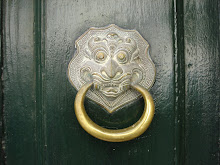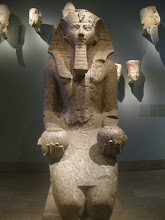It's Friday morning, and we have no water. I'm assuming that there was some kind of problem the last time Israel delivered water to Ramallah, but I have no idea exactly what has happened.
We normally get water on Wednesday evenings, when Israel opens the water pipes to Ramallah to fill the water containers on our rooftops, then maybe on Friday (I'm hoping soon!), and then I'm not sure how much more water we get in Ramallah.
Normally we're okay, because we have extra water containers on the rooftop that serve as a reserve. It costs extra, but it's money you're glad to pay if it gives you access to water every day of the week.
But this week something is obviously wrong. There's no water coming out of the faucets, no water in the toilets. Nor for the washing machine, nor, obviously, the shower.
Let me here quote some passages from Amnesty International's report on water access in the occupied Palestinian territories:
As many as 200,000 Palestinians who live in rural communities have no access at all to running water:
And to make matters worse, like I said, the water resources are mostly located in occupied Palestinian lands. But if you as, say a farmer in the West Bank (Palestinian of course, because Jewish farmers have all the water they want), want to access the water under ground to water your crops, you can't just start drilling. Because Israel
Libby gave him her plastic bottle of water, the only water they had in the car.
If small boys go thirsty when their settler neighbors have swimming pools, there is something very wrong with the state of the world.

We normally get water on Wednesday evenings, when Israel opens the water pipes to Ramallah to fill the water containers on our rooftops, then maybe on Friday (I'm hoping soon!), and then I'm not sure how much more water we get in Ramallah.
Normally we're okay, because we have extra water containers on the rooftop that serve as a reserve. It costs extra, but it's money you're glad to pay if it gives you access to water every day of the week.
The black plastic containers where Palestine keeps its water rations, waiting for proper water infrastructure
But this week something is obviously wrong. There's no water coming out of the faucets, no water in the toilets. Nor for the washing machine, nor, obviously, the shower.
Let me here quote some passages from Amnesty International's report on water access in the occupied Palestinian territories:
"Israel allows the Palestinians access to only a fraction of the shared water resources, which lie mostly in the occupied West Bank, while the unlawful Israeli settlements there receive virtually unlimited supplies."We in the West Bank, for instance, have the Mountain Aquifer as our only source of water. We are permitted to use about 20 % of this water. Israel, who has access to several additional water sources, uses 80 % of this water.
"While Palestinian daily water consumption barely reaches 70 litres a day per person, Israeli daily consumption is more than 300 litres per day, four times as much."
Illegal Israeli settlement, without a single black water container on the rooftops. They are connected to the Israeli water network.
As many as 200,000 Palestinians who live in rural communities have no access at all to running water:
"...Palestinian villagers are continuously struggling to find enough water for their basic needs, as the Israeli army often destroys their rainwater harvesting cisterns and confiscates their water tankers.
In contrast, Israeli settlers, who live in the West Bank in violation of international law, have intensive-irrigation farms, lush gardens and swimming pools."Makes you pissed of, doesn't it?
And to make matters worse, like I said, the water resources are mostly located in occupied Palestinian lands. But if you as, say a farmer in the West Bank (Palestinian of course, because Jewish farmers have all the water they want), want to access the water under ground to water your crops, you can't just start drilling. Because Israel
"has also imposed a complex system of permits which the Palestinians must obtain from the Israeli army and other authorities in order to carry out water-related projects in the OPT. Applications for such permits are often rejected or subject to long delays."When Libby, the American intern who was in our office for a couple of months this summer, went to the Jordan Valley to see with her own eyes Israel's house demolitions and destruction of Palestinian Beduin villages, her car was stopped on the road by a small boy of maybe 12 years, waving his arms desperately. Panting, he asked for any water they could spare.
Libby gave him her plastic bottle of water, the only water they had in the car.
If small boys go thirsty when their settler neighbors have swimming pools, there is something very wrong with the state of the world.




















No comments:
Post a Comment